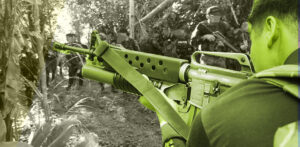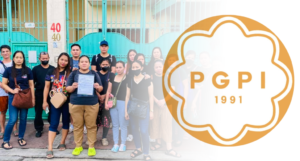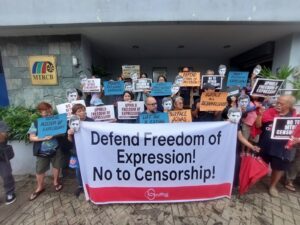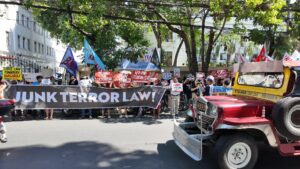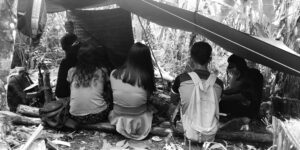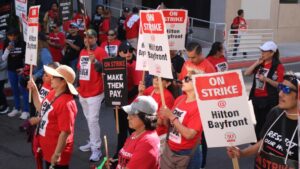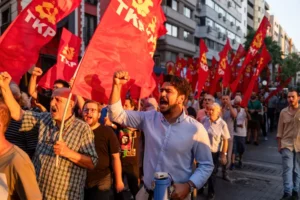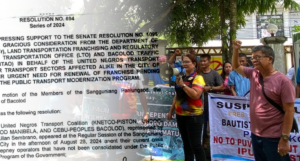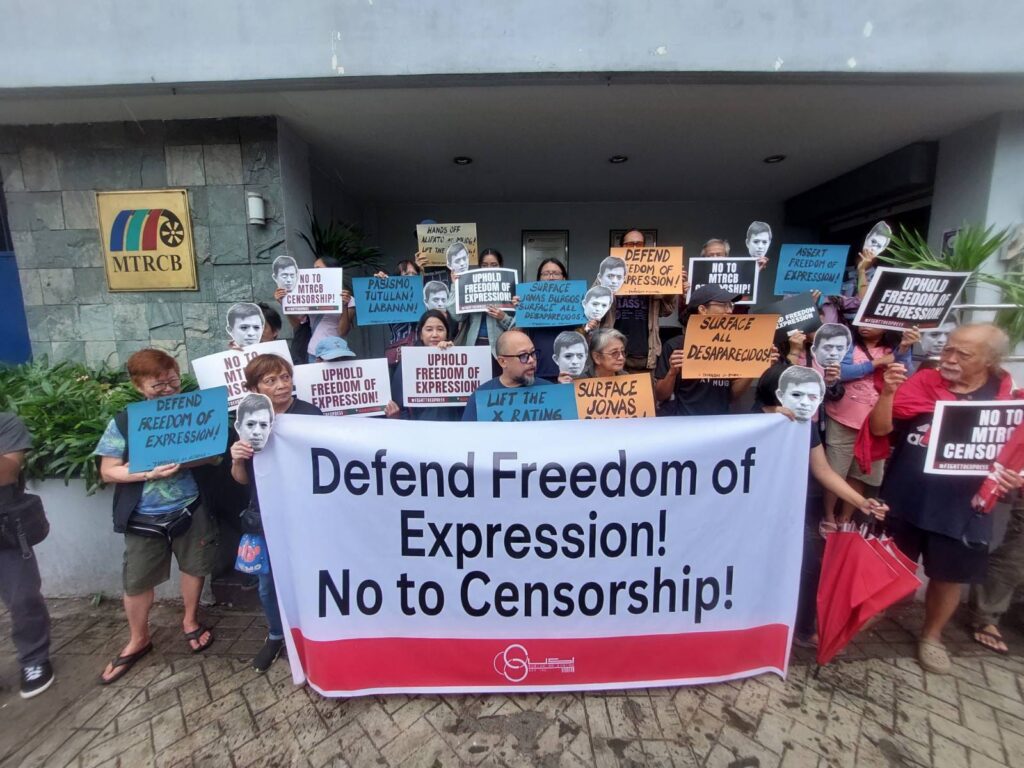
MTRCB lifts ban on public screening of desaparecides documentary
Human rights groups and democratic organizations compelled the Movie and Television Review and Classification Board (MTRCB) to allow the public screening of JL Burgos’ documentary “Alipato at Muog.” The MTRCB’s decided to give the film an R-16 Rating during the second review here on September 5. In time with the MTRCB review, supporters of the film staged a picket in front of the agency.
The film’s new rating is a clear reversal of the X Rating given by the MTRCB on August 22 during its first review. The rating banned showing the film in theaters. The MTRCB used a law made before martial law that prohibits the screening of films that “tend to undermine the faith and trust of the people in their government and/or established authority.”
“We won! Victory for people who fight!” was Burgos’ statement. He thanked all the supporters who braved the rain to picket the MTRCB and demand that the agency respect the freedom of expression.
“Alipato at Muog” is about finding answers to the abduction of JL’s brother, Jonas Burgos. Jonas was an activist abducted by state forces from a mall in Quezon City in 2007. The vehicle used by state forces was traced to a military camp. There are still no answers after nearly two decades and no one is held accountable for his disappearance.
“The battle is not yet over. We still have a long way to go. There are still many desaparecidos. Jonas is still missing. But this is what I am sure of: We will no longer be the only ones looking for my brother,” JL said.
Karapatan, on the other hand, is optimistic that the film’s release in theaters will help make more people aware of the crime of enforced disappearance. “We hope it raises awareness about the crime of enforced disappearance and encourages the public to become involved in campaigns to surface the disappeared.” Cristina Palabay, secretary general of Karapatan said.
Under the Marcos regime, Ang Bayan recorded 153 abduction victims. Of these, at least 43 are still missing. Meanwhile, 32 of the abductees were killed, 29 were imprisoned, 10 were claimed “surrendered,” and 39 were released but continue to face state harassment. Ten of the victims were children taken hostage by the military. Many of the cases were recorded in the countryside during intense military combat operations.

